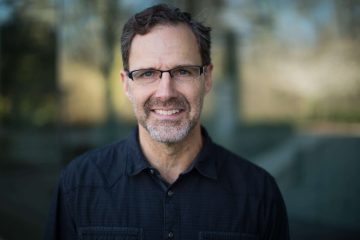Article
Work Matters! Covocational Planting & Vocation
When we leave the house on Monday morning to “go to work,” we must remember that we do not somehow leave God behind.

As a covocational leader myself, I know how easy it is to compartmentalize the idea of work. I frequently hear covo leaders say they work their “secular” job to create the financial margin to do ministry at the church. Somehow they see the work they do in church leadership as more important than their calling in the marketplace. Often unknowingly, they perpetuate a sacred-secular divide around the concept of vocation that is not only unhelpful, but unbiblical.
To ensure that we don’t compartmentalize our work, let’s start by considering this idea of the sacred/secular divide, or what some people refer to as the problem of dualism. Dualism, simply put, is wrongly dividing something that should not be divided. The Greco-Roman idea was that the world is divided into two competing dominions: the sacred (spiritual) and the secular (material). Such a worldview tends to assume that the spiritual is the higher realm and the secular, or material world, lacks deep meaning. Dualism leads to multiple divisions in thinking, including the division between the clergy (spiritual) and the laity (secular), the church (spiritual) and the world (secular) and so-called “religious” practices (Bible study, prayer, worship) and supposed secular practices (work, art, eating).
Where this form of dualism happens most often is in our understanding of vocation.
The word “vocation” comes from the Latin vocatio, meaning a call or summons. It is normally used to refer to a calling or occupation that a person is drawn to or is particularly suited for. The problem of work dualism goes back to the fourth century, when Augustine compartmentalized the way people lived when he spoke of the “contemplative” life and the “active” life. For Augustine, the contemplative life was given to sacred things and deemed a higher calling, while the active life was given to secular things and regarded as a lower calling.
However, in the 1500s during the Protestant Reformation, Martin Luther rejected this division between sacred and secular vocations. He broadened the concept of vocation from a very narrow church focus (the priesthood, nuns, monks), to describe the life and work of all Christians in response to God’s call. Luther argued that whatever vocation God called someone to, it was sacred, because it was God who did the calling.
Therefore, it can be said that the doctrine of the priesthood of all believers “did not make everyone into church workers; rather, it turned every kind of work into a sacred calling.”[i]
Bottom line: All work matters!
But unfortunately, many Christians (and some bivocational and covocational leaders) still see their “secular” work as nothing more than a necessary evil. They don’t understand how their “ordinary” everyday life is part of God’s mission.
In the book The Mission of God’s People, Christopher Wright speaks about how this distorted view of vocation sometimes makes it difficult for people to see that what they do outside the church is equally as important as what they might do inside the church:
God, it would seem, cares about the church and its affairs, about missions and missionaries, about getting people to heaven, but not about how society and its public places are conducted on earth. The result of such dichotomized thinking is an equally dichotomized Christian life. In fact, it is a dichotomy that gives many Christians a great deal of inner discomfort caused by the glaring disconnect between what they think God most wants and what they most have to do. Many of us invest most of the available time that matters (our working lives) in a place and a task that we have been led to believe does not really matter much to God—the so-called secular world of work—while struggling to find opportunities to give some leftover time to the only things we are told does matter to God—evangelism.
Therefore, part of keeping ourselves from compartmentalizing our work and ministry, and helping others engage God’s mission in the workplace, we must begin by gaining a fresh perspective on vocation. We need to see how all our work fits into the broader picture of mission.
When we leave the house on Monday morning to “go to work,” we must remember that we do not somehow leave God behind.
[i] Gene Edward Veith Jr., God at Work (Wheaton, IL: Crossway, 2002), p. 19.




